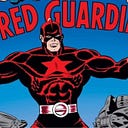Member-only story
How “Racist” Became Meaningless, or Three Degrees of Anti-Racism
“Racist” was coined surprisingly late—the Oxford English Dictionary gives the earliest example in 1919. During the first half of the twentieth century, racists were proud to be racist, but for three decades after the end of Jim Crow, everyone knew racists were despised by most Americans, so both David Duke, a Grand Dragon of the Ku Klux Klan, and Derrick Bell, the father of Critical Race Theory, claimed their race-reductionist beliefs were “racial realism”, not racism.
After Ivy League academics developed the theory that became known as anti-racism, a term that was rarely used before 1980, anti-racism took several forms. Following the model of strong and weak linguistic relativity, they can be divided into strong, moderate, and weak anti-racism.
Strong anti-racism was the original form of anti-racism. In the 1990s, Reverend Thandeka, a black Unitarian-Universalist minister and a leftist critic of anti-racism, attended an anti-racism training workshop and described what she learned:
One: All whites in America are racists.
Two: No blacks in American are racist. They’re prejudiced just like everybody else, but they lack the power of institutional resources to force other racial groups to submit to their will. Thus they can’t be racist because racism in this…
